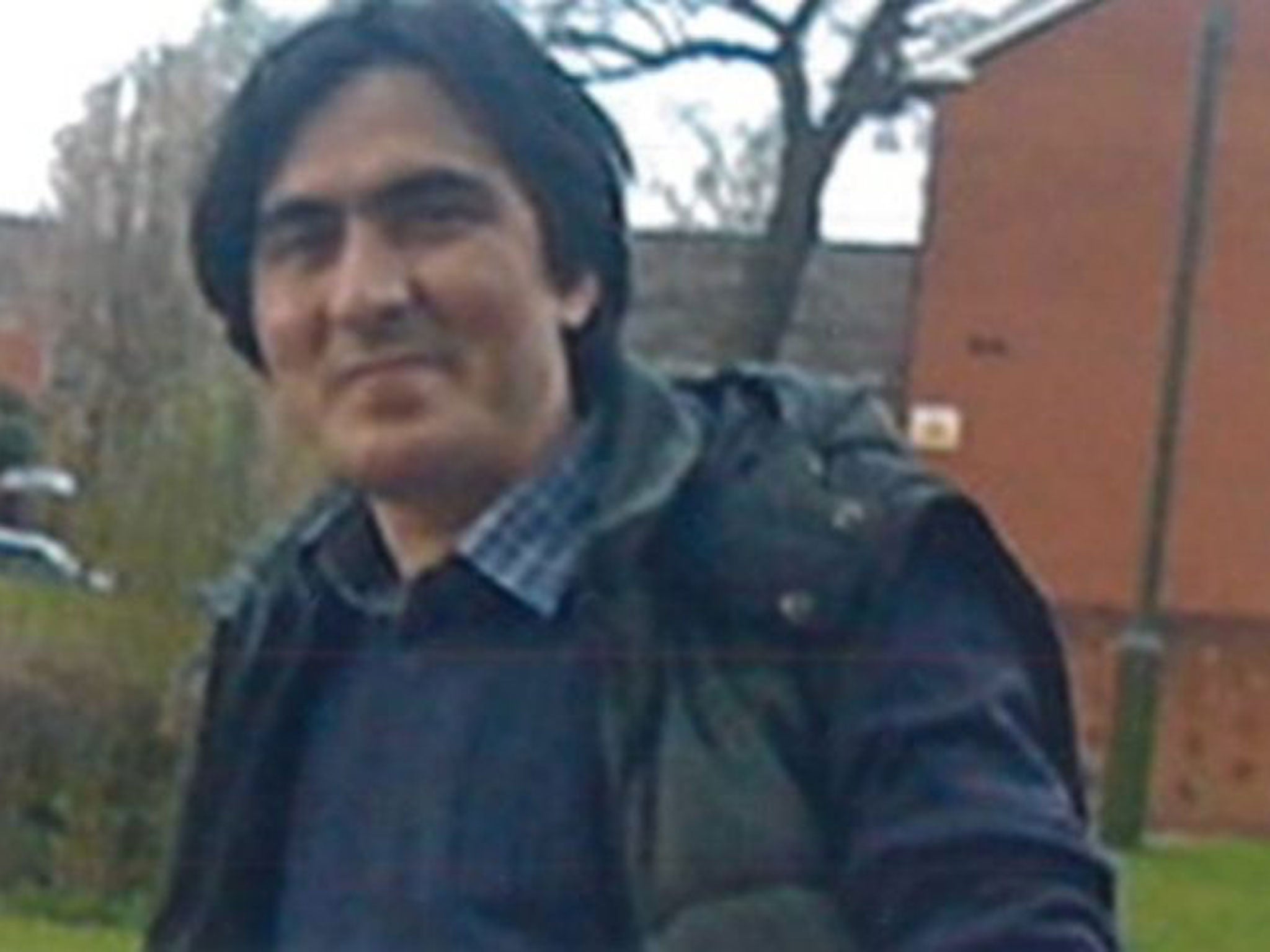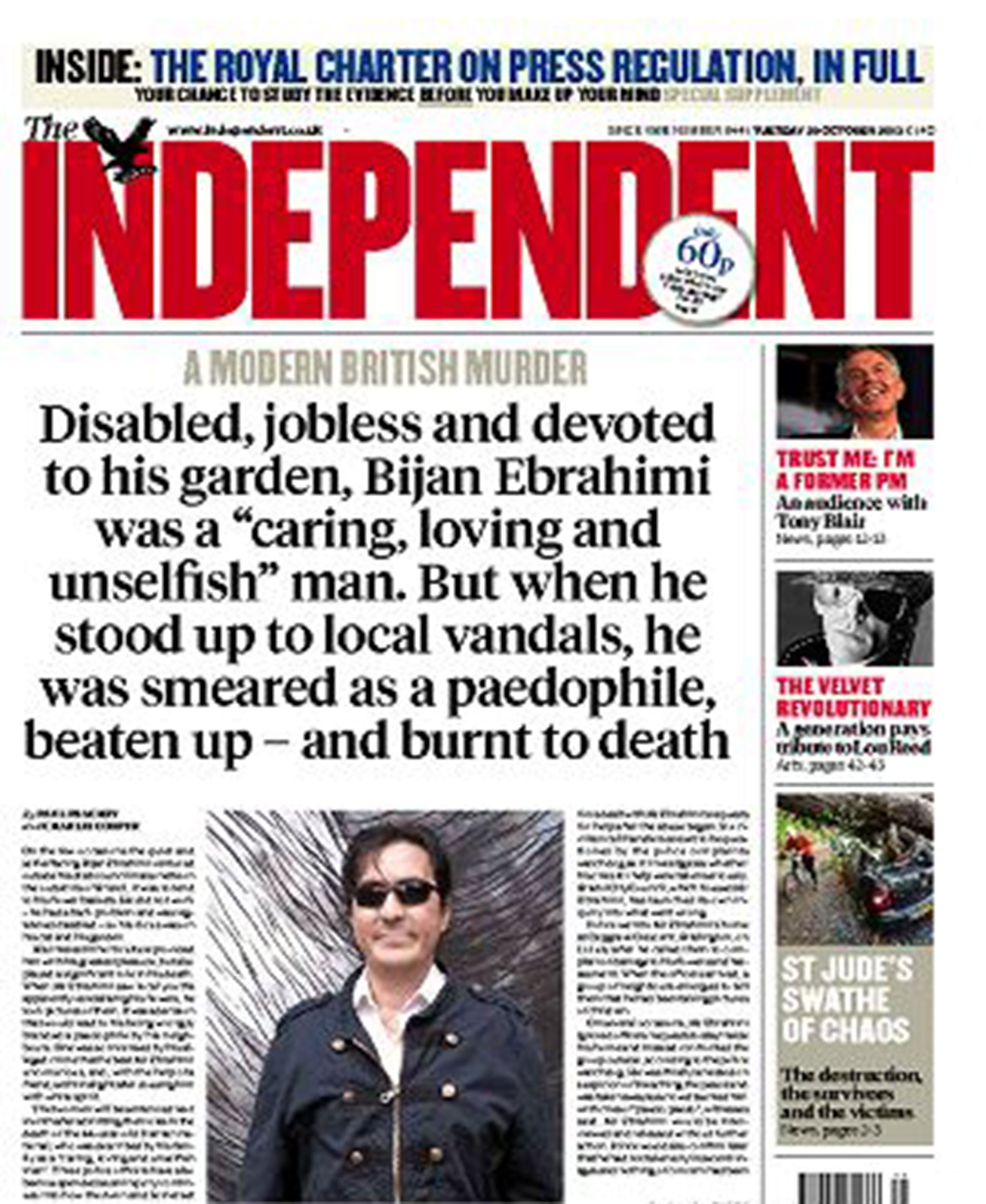Bijan Ebrahimi: How the murder of an Iranian immigrant wrongly accused of being a paedophile has inspired a film
Murderous Injustice is told from the perspective of the murderer Lee James

Your support helps us to tell the story
From reproductive rights to climate change to Big Tech, The Independent is on the ground when the story is developing. Whether it's investigating the financials of Elon Musk's pro-Trump PAC or producing our latest documentary, 'The A Word', which shines a light on the American women fighting for reproductive rights, we know how important it is to parse out the facts from the messaging.
At such a critical moment in US history, we need reporters on the ground. Your donation allows us to keep sending journalists to speak to both sides of the story.
The Independent is trusted by Americans across the entire political spectrum. And unlike many other quality news outlets, we choose not to lock Americans out of our reporting and analysis with paywalls. We believe quality journalism should be available to everyone, paid for by those who can afford it.
Your support makes all the difference.The murder of an Iranian immigrant who was wrongly thought to be a paedophile is to be the subject of a film.
Angered by the shocking killing of Bijan Ebrahimi and the “apathy” shown towards the culprit by his community, the former investigative journalist and award-winning filmmaker Gavin Scott Whitfield made the short film Murderous Injustice; it will be premiered at a Manchester arts venue later this year.
Mr Ebrahimi, who lived in Bristol, was murdered in 2013 and his killer was jailed for life; three police constables have been charged with misconduct over their response in the days leading up to his death. The disabled immigrant was seen as “caring, loving and unselfish”. But when he took pictures of young people vandalising his garden, intending to show them to police as evidence, he was smeared as a paedophile, beaten up by a neighbour and burnt to death.
“This was a racist hate-crime masquerading behind an act of vigilantism,” Mr Scott Whitfield said. “As well as his act, which was abhorrent, the community’s apathy angered me.”

He continued: “I’m from a working-class community and felt particularly angry at the local indifference. Bijan Ebrahimi was a man who should have been welcomed and made part of the community, not ostracised.”
The film, now in post-production, will be one of three by Mr Scott Whitfield to premiere at Home in Manchester, a new arts venue whose director of film, Jason Wood, has championed the film-maker.
It shows the story from the point of view of Lee James, the murderer. “Even with the most awful acts, I’ve been interested in the consequences of such an act on the perpetrator,” he said.
James, who admitted murder, beat Mr Ebrahimi unconscious. Then, with his neighbour Stephen Norley, who admitted assisting an offender, he dragged him from his home and set his body alight with white spirit.
The director added: “I don’t anonymise the victim, but wanted to look from the other side at someone who was liked and admired in the community.

Watch Apple TV+ free for 7 days
New subscribers only. £8.99/mo. after free trial. Plan auto-renews until cancelled

Watch Apple TV+ free for 7 days
New subscribers only. £8.99/mo. after free trial. Plan auto-renews until cancelled
“I didn’t want to offer up mitigation but I wanted to show him coming to terms with the lives he’s destroyed.”
James was jailed for life in November 2013 and Norley was given a four-year jail term. The judge called their deed a “vigilante crime” and “an act of murderous injustice”.
The film is also an attack on Ukip and its rhetoric, Mr Scott Whitfield said. “They play off the politics of resentment, not upwards at those destroying working-class communities but hitting down at the most vulnerable,” he said. “The language I’ve heard in the past two years and constantly deal with is terrible – that immigrants are a bad thing, destroying communities. I’m always alarmed by that talk.”
Mr Scott Whitfield, 45, wrote and directed the short film after being named last year as one of the nine recipients of the annual John Brabourne Awards, backed by The Cinema and Television Benevolent Fund, with a grant of £5,000.
“I’m compelled by wanting to tell stories of injustice and wrongdoing and hopefully I’ll be allowed to do that for some time to come,” he said.
He has written six short films, including the Bafta-nominated The Last Regal King Size, and won the Alan Clarke Award for his screenplay Leave-Taking in 2010.